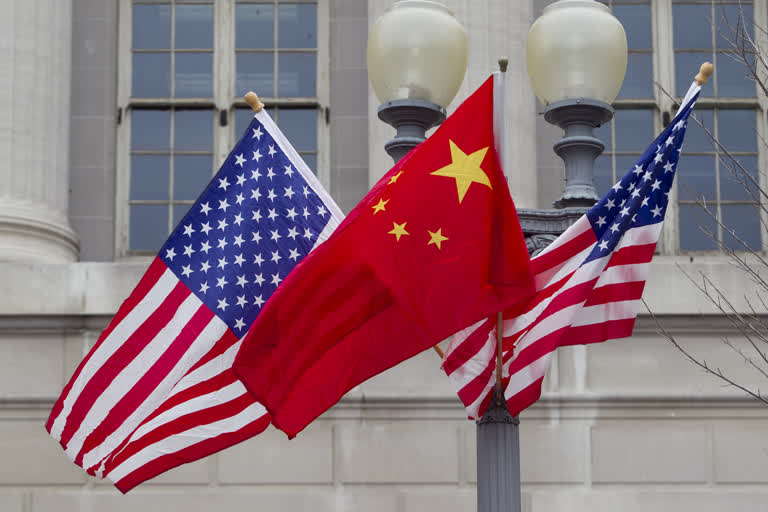Washington: The escalation of trade tension between the US and China has the potential to disrupt the global supply chains and jeopardise the projected recovery in growth in 2019, the IMF warned on Thursday, over 10 days after President Donald Trump imposed 25 per cent tariff on USD 200 billion worth of Chinese imports.
The world's two largest economies are locked in a trade war since Trump imposed heavy tariffs on imported steel and aluminium items from China in March last year, a move that sparked fears of a global trade war. In response, China imposed tit-for-tat tariffs on billions of dollars worth of American imports.
The trade war escalated after Trump on May 10 increased the import duty on Chinese products worth USD 200 billion from 10 per cent to 25 per cent.
The International Monetary Fund (IMF), in a blog authored by Eugenio Cerutti, Gita Gopinath and Adil Mohommad said that consumers in the US and China are unequivocally the losers from the trade tension.
Cerutti is currently the Assistant to the Director at the Research Department of the IMF, Mohommad is an Economist in the Research Department of the IMF and Indian-origin Gopinath is the Chief IMF Economist.
At the global level, the additional impact of the recently announced and envisaged new US-China tariffs, expected to extend to all trade between the two countries, will subtract about one-third of a percentage point of global GDP in the short term, with half stemming from business and market confidence effects, the IMF said.
Failure to resolve trade differences and a further escalation in other areas, such as the auto industry which would cover several countries, could further dent business and financial market sentiment, negatively impact emerging market bond spreads and currencies, and slow investment and trade, it said.
"In addition, higher trade barriers would disrupt global supply chains and slow the spread of new technologies, ultimately lowering global productivity and welfare. More import restrictions would also make tradable consumer goods less affordable, harming low-income households disproportionately," the IMF said.
Read more:India stopped purchasing Iranian oil after US waivers expired: Envoy
